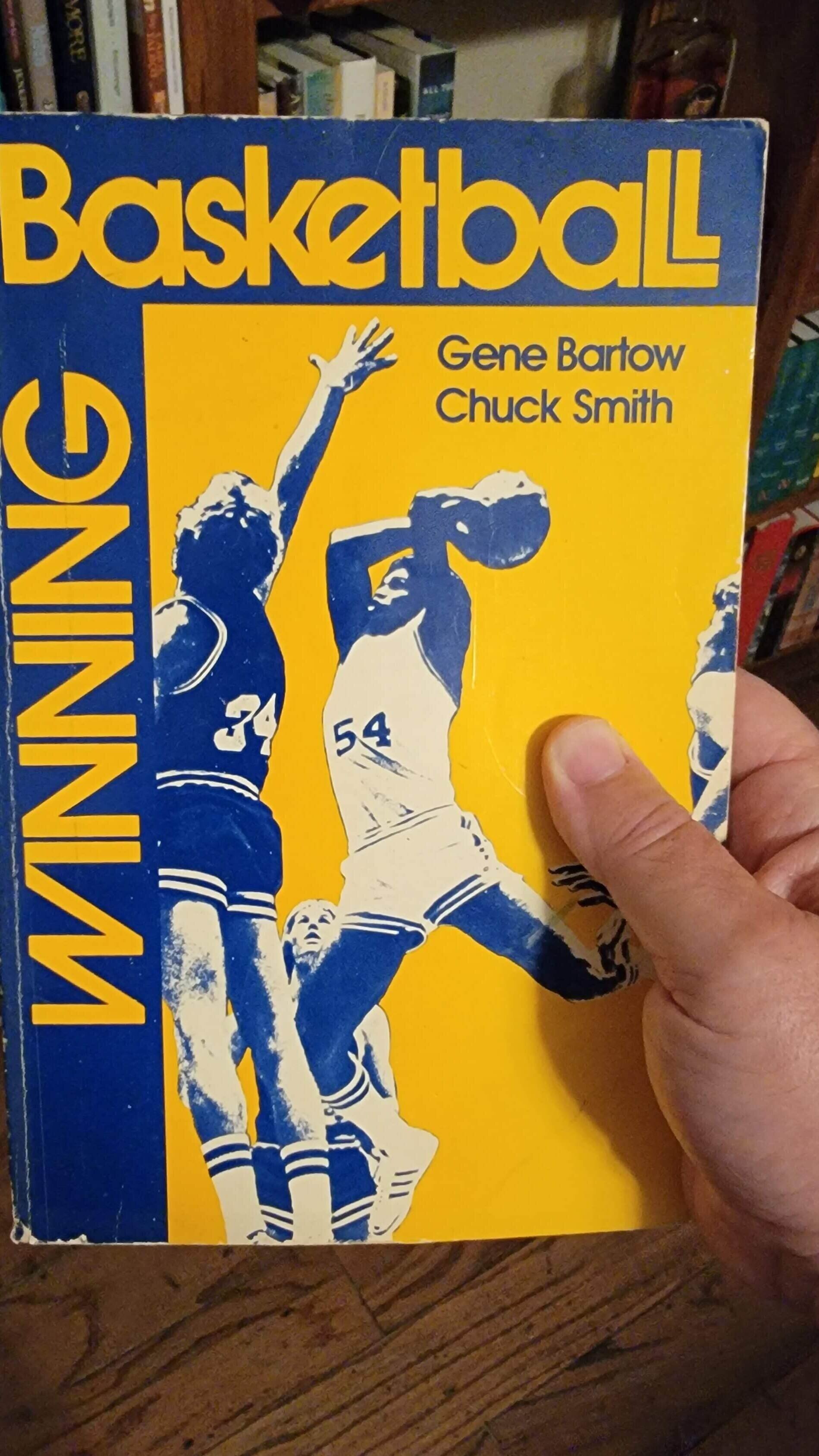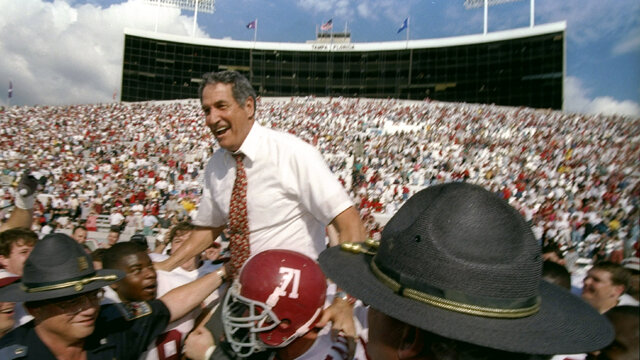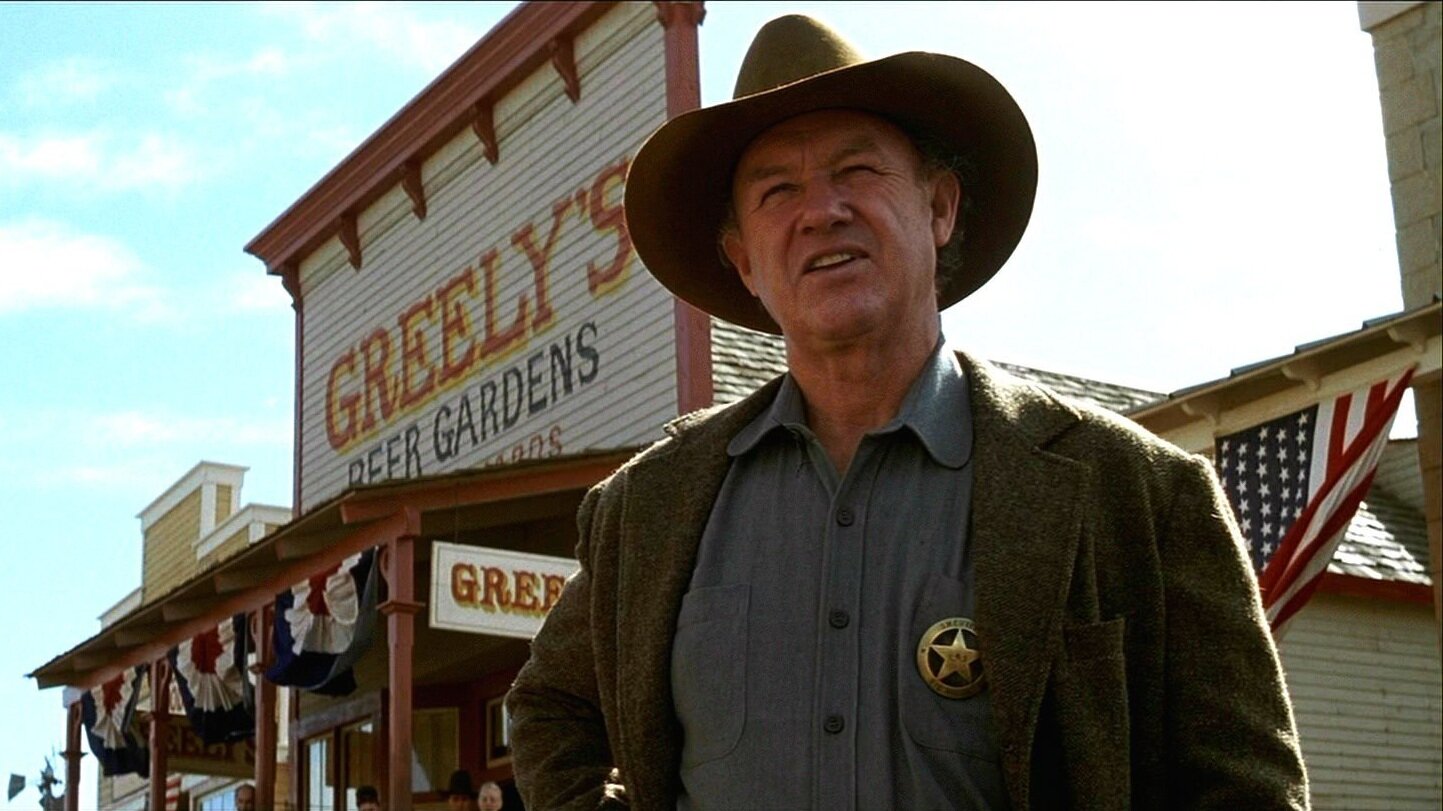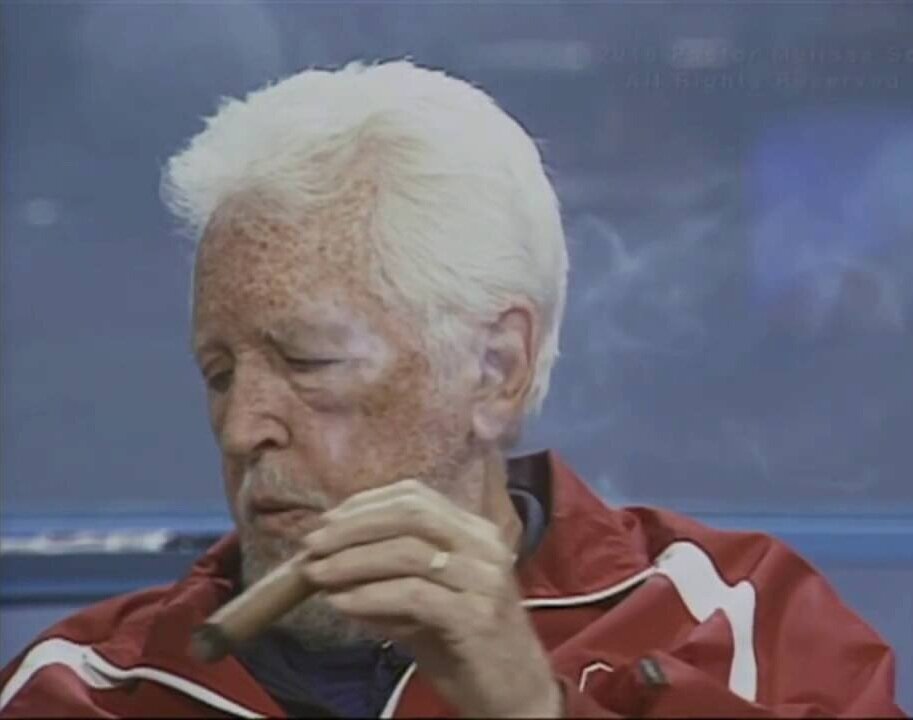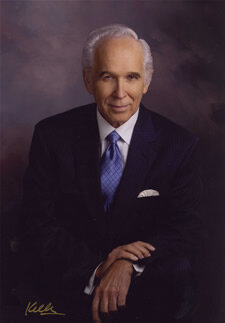I heard this story from a pulpit, so I will not attest to its veracity.
During a particular battle, a young soldier deserted his post and was brought to the commander, Alexander the Great. Alexander asked the boy his name.
Alexander is my name, sir, was the answer.
The great leader replied, Either leave off the name Alexander or be valiant!
True story or no, it drives home the point that names are tied to greatness, bravery, cowardice, or infamy because of the people who wore them. From Jesus to Judas, from Adolph to Abraham, from Benedict to Benjamin, names arouse in us certain responses.
I have been in a love-hate relationship with my name for as long as I can remember. My parents named me David Eugene Strother. David after my Dad, who is William David Strother. The William in his name is after his father, my grandfather, who is William Daniel Strother. There is at least a three-generation tradition in my family of the firstborn male being called by the middle name. Thus, I was called Eugene until I was 16 years old, at which time we moved to a new city and I dropped the first syllable and was called Gene. I have been Gene ever since.
When I was around eight years old, I asked my Dad why they ever gave me such a stupid name as Eugene. He said my mother named me after a former boyfriend. Apparently, he thought my unhappiness with my name was a great opportunity to really make me uncomfortable. Dad was a joker.
It didnt help a bit that before I was in the world, the makers of Popeye the Sailorman, a cartoon staple, introduced Eugene the Jeep. He was a weird little magical being that caused all kinds of trouble for Popeye. Weird was the key.
Nor was my cause helped by the west Texas drawl. Folks in my hometown tended to draw out the first syllable, so I was YOUgene. There is just no way to sound cool or even intelligent with this kind of nonsense. It was clear to me early on that when a person put the emphasis on the second syllable, they sounded smarter and so did I. euGENE. Thus the path from Eugene to Gene.
Note: To my Moms credit, the name Eugene does have a wonderful meaning: well-born, of noble origin.
(Get up. No need to bow.)
The Eugenes of history
With a name that is neither common fare nor completely obscure, I naturally perk up when someone of note wears the name.
There are no Eugene the Greats, like Alexander. There were, however, four popes named Eugene (I-IV) between 654 and 1447. There was Prince Eugene of Savoy (1663-1736), who was considered one of the greatest soldiers of his generation. He fought for the Austrian Holy Roman Emperor and whipped up on Turks and Balkans.
Then you have the great comedic actor Eugene Levy, whom I first became aware of as the antagonist in the movie Splash, starring Tom Hanks, John Candy, and Daryl Hannah.
Levy famously exclaimed, What a week Im having!
Eugene Levy still goes by the full name but most notable Eugenes of the 20th and 21st centuries have done as I and shortened the name to Gene. Levy is a comedian committed to his craft. No wonder he kept Eugene. Cant hurt to start with a funny name.
Let me steal and alter a line from Rodgers and Hammerstein:
These are a few of my favorite Genes¦
The Sports Gene
Gene upshaw [1945-2008]
I am a sports nut. I especially love the game of American football, but I also follow baseball, basketball, hockey, and even a little soccer. I am a Dallas Cowboys fan, so the Oakland (now Las Vegas) Raiders and their mob-boss-looking, renegade, thorn-in-the-flesh owner and general manager Al Davis were, to me, the embodiment of football evil. From their nickname to their logo, to their frothing fans, and even to their outlaw players, they were – and embraced the notion that they were – the bad boys of the NFL.
Gene Upshaw, on the other hand, was named, well, Gene. He was also an elite offensive lineman, one of the greatest the game has ever known. He played 15 seasons for the Raiders, first in the American Football League and then, after the merger, in the National Football League. He was fierce. He was ferocious. He was also the first to play exclusively at the guard position and then make the Pro Football Hall of Fame. Upshaw played in 10 AFL/AFC title games and three Super Bowls. He was All-League seven times, named to seven Pro Bowls, and recorded 207 consecutive starts in his career.
There was more to Upshaw than the usual vitality, vigor, and venom of the monsters in the NFL trenches. After retirement from the game as a player, he was elected executive director of the NFL Players Association. Not only could he shred opponents on the field, but he was also shrewd off it.
Known to friends as Uptown Gene or Highway 63, Upshaw lived large. He died just three days after learning he had cancer in 2008.
He was a mean, motor scootin Gene. I learned by watching him play football that you could be named Gene and be a man about it.
gene bartow[1930 – 2012]
They say 1967 was the Summer of Love. I don’t know. I was six.
1978? That was the summer of sports! I was headed into my senior year of high school. A classmate and I signed up for a basketball camp at the University of Texas at Arlington. It was to be hosted by a couple of NBA players. I do not recall which ones. It was canceled and I was distraught.
Then we had this dynamic karate master/evangelist named Mike Crain come through our church in south Arlington. He mesmerized and astonished us with his prowess, breaking concrete with his bare hands and slicing a watermelon off of the music directors stomach with a Samurai sword.
In the July 30, 1973 edition of Sports Illustrated, Crain was featured in an article called Striking a Blow for Christ. It begins like this:
Night swoops into southwestern Kentucky like a big blackbird, flooding the valleys and scaling the mountains, painting away the lingering glitter of the sun. Mike Grain, director of the Judo & Karate for Christ Camp, stands at the podium above the congregation of Wells Chapel. Although an ordained Baptist minister, Crain wears the loose robes of a karatist, with a second-degree black belt. It is an outdoor chapel, roofed against rain, with bare bulbs teardropping from plain sockets, tossing light over the solemn faces of Crain’s congregation, leaking artificial yellow out into the night.
“I can slice a banana in half on your neck, sever a potato on your hand. I can break 12 inches of concrete with my head. I’m a hardheaded, barefooted Baptist preacher and I have a special power.” He has a backcountry voice that rises and falls in a song of words and beats out a rhythm like a hillbilly guitar.
[Disclaimer: I learned while researching for this article that MIke Crain was indicted and found guilty of sexual crimes and incarcerated for some time. He is not the focus of this piece.]
Sometime between that articles appearance on newsstands and the summer of ˜78, Crain formed the National Association of Christian Athletes and opened a sports camp in Tennessee. He was able to attract some big-name Christian athletes and coaches to come to train teenage hopefuls like me willing to pay a few bucks to learn from master craftsmen.
My classmate and I had new life! That camp would feature multiple sports. We could enroll in two. I signed up for basketball and baseball. Baseball was taught by former major league pitcher and Liberty University manager, Al Worthington. During his career, he played for the New York / San Francisco Giants, Boston Red Sox, Chicago White Sox, Cincinnati Reds, and Minnesota Twins. He was 49 years old in 1978 and making guys like me hit the dirt when he threw his big curveball because it looked for all the world like it would peg you in the head but then it dropped over for a strike instead. It was my first taste of batting against a major league arm. It was also, as it turns out, my last.
Basketball was led by Gene Bartow, the legendary coach who guided the Memphis Tigers to their only NCAA basketball championship game where they fell to the mighty UCLA Bruins in 1973. He later established the sports program at the University of Alabama, Birmingham. Bartow coached for six universities over a 34-year career and finished with a record of 647-353, making him the 38th winningest coach in NCAA history. Bartow was inducted into the National Collegiate Basketball Hall of Fame in 2009.
Coach Bartow was a gentleman, understated but self-assured. He taught me more about basketball in a week than I had learned in all of the years leading up to that week and most of the years since. Bartow wrote a book called Winning Basketball. He gave me an autographed copy of the book after I won a camp shooting challenge.
Gene Bartow died in 2012 at the age of 81. He was remembered as a legend in the cities of Memphis and Birmingham. I remember him as the first – and only sports legend – to ever put a hand on my shoulder and tell me I had a little something.
Turns out it was a very little something, but I got it.
Gene Stallings[1935 – ]
Gene Stallings is a legendary football man. He played college ball at Texas A&M where he was one of the ballyhooed Junction Boys. He later served as head coach at his Alma Mater. He played for the St. Louis Cardinals in the NFL. In 1992, as head coach of the Alabama Crimson Tide, he won the national championship. More importantly, he was also a member of Coach Tom Landrys coaching staff for 14 years, beginning in 1972. He helped them become one of the most dominant teams of any era. He left to become head coach of the St. Louis Cardinals.
Stallings is from Paris, Texas.
Hey! I lived there myself back in the 1990s, which brings me to my brush with greatness. (It was actually more than a brush, as you will see.)
I was the pastor of the Victory Baptist Church. It was often our habit after a Sunday morning service to go out for lunch. It was also not uncommon for us to go with someone from the church. James and Darenda Babb were sometimes in the mix. They were with us one Sunday when we decided to go to everyones favorite Mexican joint, TaMollys. I was looking back at James as I approached the entrance, and I plowed into a man some years my senior. I did not knock him down, but I did my best. I sort of grabbed at him to prevent a fall and quickly apologized. He smiled and nodded and we each went our way, me in for lunch and him out to his car.
James was chuckling and shaking his head.
What? I asked. I didnt hurt him.
You didnt recognize him either, did ya? He grinned.
I looked back at the man getting into his car.
You just plowed over Gene Stallings, Preacher, panned James. You couldve at least got me an autograph.
Other notable sports genes
Gene Washington was a speedy receiver for the San Francisco Giants. He had one of the eras great afros. He also possessed good hands and quick feet. After he retired as a player, he served as Director of Football Operations for the NFL from 1994-2009.
Gene Chizik coached Cam Newton and the Auburn Tigers to an undefeated 2010 season, going 14-0 and winning the BCS National Championship. A family man, he later retired while still enjoying success as a coach so that he could spend more time at home.
James Joseph Gene Tunney (1897 – 1978) was a champion boxer, holding titles in both the heavyweight and the light heavyweight divisions. He beat the great Jack Dempsey TWICE. He also earned the first million-dollar payday in sports history.
This particular Gene had an interest in literature. In 1932, he released a book titled, A Man Must Fight. He also authored an autobiography, which he named, Arms for Living.
Tunney was not named Eugene or Gene, just had the good sense to go by the name anyhow.
A lot of you could learn from him.
The Artful Gene
Notable Genes have contributed to the arts, some in memorable and even singular fashion. To name a few¦
Gene Kelly [1912-1996]
When it comes to dancers on film, the question is clear and simple: Gene Kelly or Fred Astaire? It is like arguing who is the GOAT in basketball, Michael Jordan or LeBron James? (Wilt, who once scored 100 points in a game might disagree with your answer, regardless of which you pick. So might Bill Russell, who won ELEVEN championships.)
Astaire was poetry in motion. Kellys style was more athletic and physical. It was grace versus power. Gene Kelly starred in Singing in the Rain, perhaps the most famous dancing film ever. He was nominated for the Best Actor Oscar for his performance in On the Town in 1949. He received the honorary Academy Awards Career Achievement Award in 1959, having all but singlehandedly brought ballet to film and popularized it. He altered the musical film like no other.
Lest you think ballet is a sissy thing or for those of a particular sexual bent, Kelly said he started dancing because it was a good way to meet girls¦
At 14, I discovered girls. At that time, dancing was the only way you could put your arm around the girl. Dancing was courtship. Only later did I discover that you dance joy. You dance love. You dance dreams.
He also remarked, Any man who looks like a sissy while dancing is just a lousy dancer.
Reminds me of the song, We Can Dance if We Want To by Men Without Hats¦
We can dance if we want to
We can leave your friends behind
‘Cause your friends don’t dance
And if they don’t dance
Well, they’re no friends of mineSay, we can go where we want to
A place where they will never find
And we can act like we come
From out of this world
Leave the real one far behindAnd we can dance
Or sing
Oh yeah, on the question of Gene Kelly vs Fred Astair, Kelly quipped, Fred Astaire represented the aristocracy, I represented the proletariat.
Attaboy! Genes are for the people.
Gene Wilder [1933-2016]
There is just no way to see Willy Wonka and not see the genius that played him. And what would Blazing Saddles be other than an offensive, politically incorrect movie without Wilder? Who doesnt think of Young Frankenstein and hear the triumphant declaration, Its Aliiiiiiiive!
Gene Wilder is another Gene who was not a Gene at all but elected to become one. He was born Jerome Silberman. Gene Wilder was his chosen screen name. He was one of Hollywoods all-time great comedic actors. His friendship and partnership with Mel Brooks kept Americans in stitches for years.
Gene married funny girl Gilda Radner, whom he loved with a fervor he never had for the myriad other lovers of his life. She was his soulmate.
Radner died of cancer. She told him she had a title for him and he should use it.
Kiss me like a stranger.
Gene would use the phrase for the title of his autobiography. After I read the impactful memoir, I wrote my own poem by that title. You can find it here.
Genes immense success in the 60s and 70s did not mark the end of the road for his stamp on comedy. In 1980, he paired with Richard Pryor in Stir Crazy. Together they made no small stir.
In Young Frankenstein, Wilder corrected all of us when he said, No! Its pronounced FRONKensteen.
Success is a terrible thing and a wonderful thing. If you can enjoy it, it’s wonderful. If it starts eating away at you, and they’re waiting for more from me, or what can I do to top this, then you’re in trouble. Just do what you love. That’s all I want to do. -Gene Wilder
Gene Hackman [1930 – ]
He was Little Bill in Unforgiven, my favorite Clint Eastwood western. His character was menacing, humorous, intelligent, intense, and dangerous. Little Bill was complex. He was as full of personality as he was venom.
Little Bill was a bad man with a badge. He was a true sadist. His evil contrasted with the plain honesty of Eastwoods Will Munny, a reformed killer, who had turned unsuccessful dirt farmer, widower, and father of two preteens, a boy and a girl.
Little Bill tortured Munnys best friend to death and as a result found himself on his back with a double-barreled shotgun in his face. Will stood over him holding that shotgun.
I will see you in Hell, Will Munny, he snarled.
Yeah, panned Munny and pulled the trigger.
Hackman was Little Bill. That was the power he possessed as an actor. You believed him.
Eugene Allen Hackman won two Academy Awards, four Golden Globes, and a Screen Actors Guild Award. The Poseidon Adventure, The French Connection, A Bridge Too Far, Hoosiers, No Way Out, The Firm, The Quick and the Dead, Get Shorty, Enemy of the State, The Replacements, Behind Enemy Lines, The Royal Tenenbaums¦ this is not an exhaustive filmography, but it is exhausting.
Hackman rates among the very best to ever portray another person on a big screen. He may not be peerless, but he doesnt have that many peers. He retired from acting on his own terms.
Hackman said, and it ought to be repeated, The difference between a hero and a coward is one step sideways.
The Crazy Gene
Gene Rosselini
He was dubbed The Mayor of Hippie Cove.
He lived in a remote cave in Alaska on Prince William Sound. In the area, there was just an old school bus, a couple of shacks with no electricity or running water, and Rosselinis cave. He was born to privilege. He was well-educated and highly intelligent. He was a caveman by choice.
In his unforgettable book, Into the Wild, Jon Krakouer summarizes Rosselinis compelling life like this:
He was the eldest stepson of Victor Rosellini, a wealthy Seattle restaurateur, and cousin of Albert Rosellini, the immensely popular governor of Washington State from 1957 to 1965. As a young man Gene had been a good athlete and a brilliant student. He read obsessively, practiced yoga, became expert at the martial arts. He sustained a perfect 4.0 grade-point average through high school and college. At the University of Washington and later at Seattle University, he immersed himself in anthropology, history, philosophy, and linguistics, accumulating hundreds of credit hours without collecting a degree. He saw no reason to. The pursuit of knowledge, he maintained, was a worthy objective in its own right and needed no external validation.
By and by Rosellini left academia, departed Seattle, and drifted north up the coastthrough British Columbia and the Alaska panhandle. In 1977, he landed in Cordova. There, in the forest at the edge of town, he decided to devote his life to an ambitious anthropological experiment.
I was interested in knowing if it was possible to be independent of modern technology, he told an Anchorage Daily News reporter, Debra McKinney, a decade after arriving in Cordova. He wondered whether humans could live as our forebears had when mammoths and saber-toothed tigers roamed the land or whether our species had moved too far from its roots to survive without gunpowder, steel, and other artifacts of civilization. With the obsessive attention to detail that characterized his brand of dogged genius, Rosellini purged his life of all but the most primitive tools, which he fashioned from native materials with his own hands.
He became convinced that humans had devolved into progressively inferior beings, McKinney explains, and it was his goal to return to a natural state. He was forever experimenting with different eras Roman times, the Iron Age, the Bronze Age. By the end his lifestyle had elements of the Neolithic.
He dined on roots, berries, and seaweed, hunted game with spears and snares, dressed in rags, endured the bitter winters. He seemed to relish the hardship. His home above Hippie Cove was a windowless hovel, which he built without benefit of saw or ax: Hed spend days, says McKinney, grinding his way through a log with a sharp stone.
As if merely subsisting according to his self-imposed rules weren strenuous enough, Rosellini also exercised compulsively whenever he wasn’t occupied with foraging. He filled his days with calisthenics, weight lifting, and running, often with a load of rocks on his back. During one apparently typical summer he reported covering an average of eighteen miles daily.
Rosellinis experiment stretched on for more than a decade, but eventually he felt the question that inspired it had been answered. In a letter to a friend he wrote:
began my adult life with the hypothesis that it would be possible to become a Stone Age native. For over 30 years, I programmed and conditioned myself to this end. In the last 10 of it, I would say I realistically experienced the physical, mental, and emotional reality of the Stone Age. But to borrow a Buddhist phrase, eventually came a setting face-to-face with pure reality. I learned that it is not possible for human beings as we know them to live off the land.’
In the end, we are told, Gene Rosselini was found with a knife plunged into his chest. He died in the cave where he lived the last ten years of his life.
A few say he was murdered. Officials ruled it suicide.
Gene Simmons[1949 – ]
My first brush with Satan was a KISS.
I grew up in a conservative Baptist church where everyone knew that the rock group KISS with their black and white makeup, outrageous costumes, and irreverent music were Satanists. Their monicker, we were assured, was an acronym for Knights In Satans Service.
The frontman, the face of KISS, was Gene Simmons. Simmons and his ridiculously long tongue was the perfect picture of crazy for the band that rocked the world and shook conservative Christians to their collective core.
Gene says he was raised in a traditional Jewish household. He says he was dirt poor, and often subsisted on rationed meat and milk. That is a far cry from the 12,000sf Lake Tahoe mansion the now 72-year-old rocker inhabits today.
An insanely successful music artist, Simmons has also enjoyed immense success as an entrepreneur. Much of his wealth results from licensing deals for logos, icons, and intellectual properties.
I dont believe KISS is an acronym for anything. One rock historian says that Simmons and band partner Paul Stanley put the name in all caps to make it stand out because there was no bold type back then. I dont know if that is true, either. I dont believe Simmons and his pals ever made a deal with the Devil but I do know, if they did, it has paid dividends. But then, as the great Baptist preacher R. G. Lee told us in his famous sermon Payday Someday, the final check has not been cut.
We will all have the books balanced by and by. All of us Genes and the rest of you, too.
The Gospel Gene
Gene Scott [1929-2005]
I list Gene Scott here first because he is a perfect transitional figure from crazy genes to gospel genes. Any bible college or seminary student from the late 1970s or the ˜80s will likely remember hours of dumbfounded, awestruck entertainment. He was the talk of the campus on those mornings after he put on one of his cigar-chomping, dog-cussing talk show/preaching performances.
For this article, I went to YouTube to stoke the fires of remembrance because I hadnt thought of the once-popular Bay-area TV preacher with the cult-like following in decades. The first sermon I found and listened to was Kill Some Pissants for Jesus.
I remember Gene Scott as a tad crazy, irreverent, outrageous, and outrageously entertaining. Some remember him as dangerous, a blight on Christianity.
His close friend and disciple Merle Haggard remembered him a little differently¦
He was the mind that all other brilliant minds looked to for guidance on problems that were insoluble.
Granted, I never thought I would use Merle Haggard and discipleâ in a sentence. But then I also never imagined Merle using insoluble in a sentence. You just never know, do you?
Did you know this? Gene Scott held a Doctorate in the Philosophy of Education from Stanford University.
In his doctoral dissertation, Scott quoted Niebuhr in describing his lifes goal:to descend from the anthill of scholastic hair-splitting to help the world of men regulate its common life and discipline, its ambitions and ideals. ~Los Angeles Times, February 23, 2005
Gene Scott was as complicated as he was shocking.
Scott would hold forth on stage in front of a plexiglass board, his back to the camera, and use markers to jot down biblical references, Greek words and diagrams as he gave detailed lectures on the verses and the historical contexts in which they were written — without referring to a single note. ~LA Times
I will tell you this: I never begrudge a man a good cigar. I saw him preach in a sombrero once. I do not begrudge him that either. Just not real sure about the dancing girls.
Gene Edwards [1932 – ]
The year was 1986. The place was the San Joaquin Valley, in California. I was going through my first real test as a minister and my first crisis as a man. People were gunning for my job and I had supplied the bullets. The one most interested in my demise was a fellow pastor and former boss and mentor. He had blood in his eye and gravel in his craw. He was bent on putting an end to my ministry before it had even gotten off the ground.
After the crisis, my family and I came home to Texas for the holidays. We needed to lick our wounds, let the people who loved us most love on us, and regroup. We were about to head back to California when I received a call from my uncle, who is more like my brother since he is only three years and some months older than me. He is also a gospel preacher. He had suffered his own devastation. He said he had a book for me. I told him I had to get back and was hitting the road. He said I needed the book and he would meet me on the highway to give it to me,
He did. We met on the shoulder of Interstate 35.
The book was titled A Tale of Three Kings, written by Gene Edwards and released in 1980. This little book about Saul and David and David and Absolam changed my life. It was written so powerfully and yet it was simple, straightforward, elegant without pretension. It changed me as a man, a preacher, and a writer. I have given a copy of the book to every preacher boy over whom I have had the privilege of being an influence.
Edwards has written over 30 books. He remains one of my favorite Christian authors. If you read The Prisoner in the Third Cell, you will gain a whole new perspective on – and appreciation for – John the baptist. Edwards book The Divine Romance is hailed as a classic on par with Oswald Chambers My Utmost for His Highest and C.S. Lewis Mere Christianity.
Gene is a Texan by birth. He was born in Commerce, Texas in 1932. Commerce is just a hop, skip, and jump from Paris, where I pastored from 1991-1997.
The Analytical Gene
Gene Siskel [1946 – 1999]
Gene Siskel never made a movie that I know of, but he sure made (and lost) a lot of movies money. He was a famous Chicago Tribune journalist and movie critic. He co-hosted the immensely popular Siskel and Ebert with crosstown journalism rival and buddy Roger Ebert of the Chicago Sun-Times.
During their run, an Oscar was the only thing more coveted in Hollywood than two thumbs up from Siskel and Ebert.
Gene developed brain cancer and died from surgery complications in 1999.
Ebert once said of his relationship with Siskel:
Gene Siskel and I were like tuning forks. Strike one, and the other would pick up the same frequency. When we were in a group together, we were always intensely aware of one another. Sometimes this took the form of camaraderie, sometimes shared opinions, sometimes hostility.
The Greatness Gene
When you talk about the greatest of all known Genes, the argument starts – and ends – with one name.
Gene Autry[1907 – 1998]
I cannot think of any place better suited to produce the worlds greatest singing cowboy than the tiny town of Tioga, Texas. Tioga is smack dab in the heart of horse country. With its 350+ horse farms, it is a real equine mecca. Built near a river and next to a railroad crossing, Tioga wears its Indian name meaning rushing waters with pride.
No horse or man has emerged from this North Texas hamlet the equal of Orvon Grover Autry, known the world over as Gene Autry. Gene was raised in Texas and Oklahoma. The latter, we Texans may forgive because that is where he was discovered by a man no less notable than Will Rogers.
They put Gene on the radio in Tulsa and dubbed him Oklahoma Yodeling Cowboy. He was signed to Columbia Records in 1929. He began making films as a singing cowboy in 1934. He single-handedly popularized the musical Western and over the next 20 years made 93 films.
In 1940, theater exhibitors of America voted Autry the fourth biggest box office attraction, behind Mickey Rooney, Clark Gable, and Spencer Tracy. –GeneAutry.com
Autry fought in World War II from 1942-46.
In addition to his indispensable contribution to Hollywood, Autry was a prolific songwriter/singer.
Autry made 640 recordings, including more than 300 songs written or co-written by him. His records sold more than 100 million copies and he has more than a dozen gold and platinum records, including the first record ever certified gold. His Christmas and children’s records Here Comes Santa Claus (Right Down Santa Claus Lane) and Peter Cottontail are among his platinum recordings. Rudolph the Red-Nosed Reindeer, the second all-time best selling Christmas single, boasts in excess of 30 million in sales. -GeneAutry.com
Autry produced several popular series on television. He also owned an award-winning radio station in southern California and several television stations. In 1960, he bought the California Angels (now the Anaheim Angels) and in 1988 he opened the Autry Museum of the American West.
Other than that, he didnt amount to much.
Whats in a name?
Shakespeare famously wrote, Whats in a name? A rose by any other name would smell as sweet.
My struggle with my name during my adolescent and teen years was no small thing to me. I wanted a cool name. My Uncle Troy had a cool name. I wanted one.
What I came to realize was this:
-
You may have a name to live up to, like my first name, David, for instance. I mean, theres a name to live up to. King David is one of the most talented, versatile, and accomplished men to ever walk the earth. He was flawed but he was great at everything he did. He was even called man after Gods own heart.
-
What you put into your name is far more important than what it puts into you. You make it a name to honor or dishonor, to relish or regret. Whatever your name, what you do with that name is what counts.
Reflections
-
Who is your favorite namesake and why?
-
If your journey ended today, what would your name be remembered for?
-
Since, hopefully, your journey will not end today, what will you do with the name your momma gave you?
Proverbs 22:1 [english standard version of the holy bible]
A good name is to be chosen rather than great riches, and favor is better than silver or gold.
Ecclesiastes 7:1 [ESV]
A good name is better than precious ointment, and the day of death than the day of birth.
Whether you like your name or you dont, this is on you. Go out there and make a name for yourself.
By the way, turns out my Momma never named me after any old boyfriend. My Dad named me¦after his favorite singing cowboy. He did give me, after all, a name to live up to.


